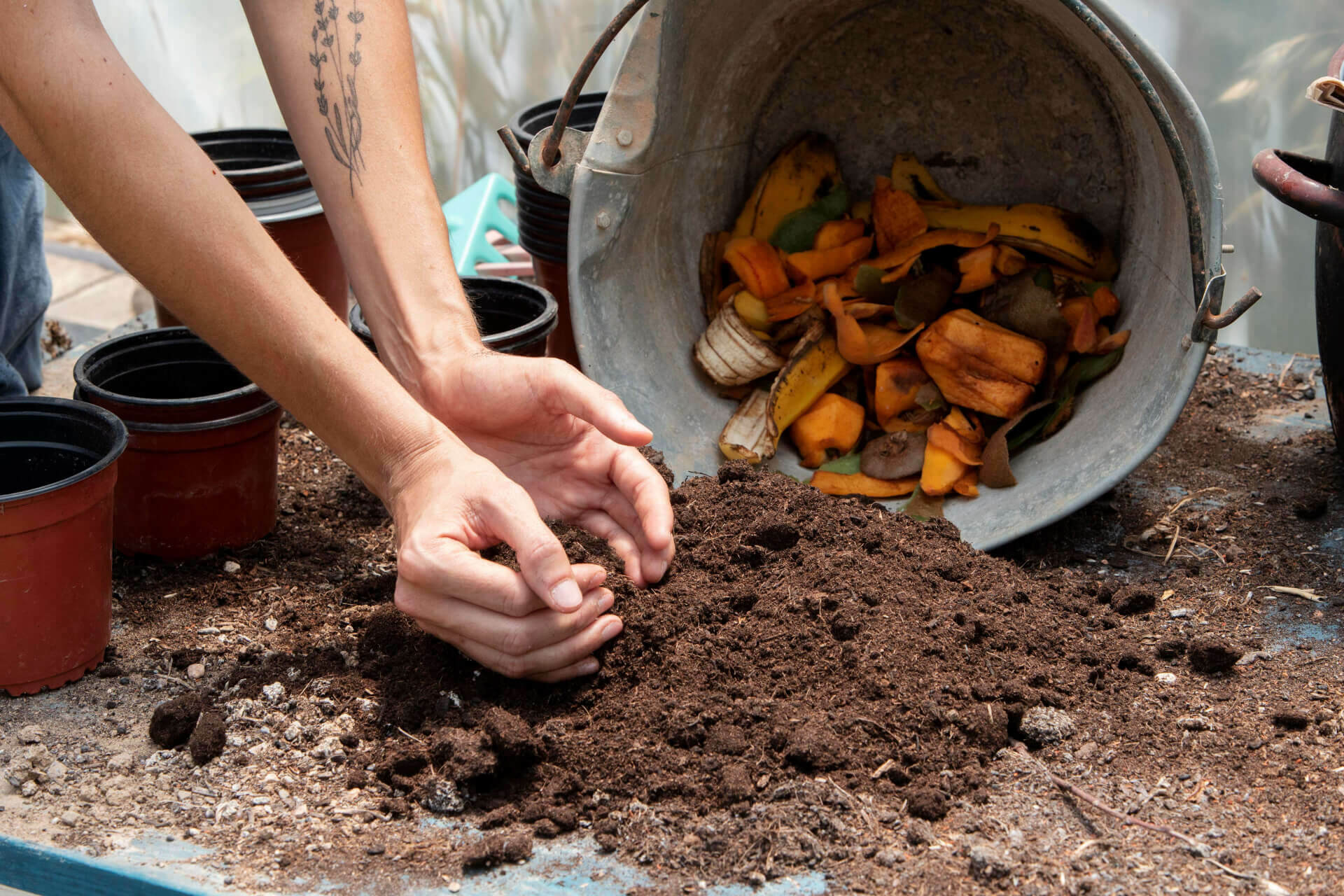Create your own compost heap
You know the drill: after a nice day's work in the garden, you have a load of green waste. You tend to throw everything straight into the green bin to keep your garden looking tidy. A shame! Green waste can actually be very well recycled. You can turn it into a compost heap and feed your garden, making it look even more beautiful. But how to go about it?
Garden waste vs green waste
When you plan to make a compost heap, it is of course important to know which types of waste can and cannot go in it. After all, not all garden waste is suitable for a compost heap. After all, garden waste also includes paving, wood, polluted soil, turf, paper/cardboard, etc. None of this is suitable for a compost heap. What can go in there is pruning waste, branches, vegetable garden waste, grass, bamboo, fruit and vegetable waste and so on. Anything green. So that is the big difference between garden waste and green waste. Green waste you can compost, garden waste you cannot.
The only separate case is soil. Small amounts of loose soil can best be mixed in the compost heap, but if there is too much sand or infertile soil present, the compost process will not work. So be sparing with that!
Well balanced
Now that you know which wastes are suitable for a compost heap, you can start saving your green waste. You can do this in a special compost bin, or make your own compost pile in your garden. This is literally a pile of the waste from your kitchen and garden, with a fence around it. However, always make sure you only save up waste that digests well and that it is not too coarse. It is advisable to cut large branches into small pieces.
Place your compost bin or pile in semi-shade, so that it gets several hours of sunshine a day. Mix wet material (grass, vegetable and fruit waste) from your green waste with dry material (twigs, straw, leaves). This way your heap will have enough balance and structure. The right temperature, humidity and oxygen will allow the organic rotting process to begin!
Organic decay process
What is composting anyway? As already mentioned, it is an organic decay process. The plant material in the compost heap is broken up by fungi and bacteria. The oxygen they use in the process is converted into carbon dioxide, water and heat. Worms and other small animals help with this decomposition process. When the breakdown is finished, what is left is compost. This is a fertile substance full of nutrients for your garden. So by composting, you actually create a sustainable and totally free soil improver for your garden! This not only makes your garden happy, but also the environment and your wallet. Win-win!
Not too neat
Every year, shovel your compost heap a few times so that all the substances mix well and a perfect soil improver is created. You can then spread this over your garden in spring. This way, you enrich the soil and improve biodiversity in your garden.
Don't feel like making a compost heap? You can also just leave fallen leaves and branches in autumn, or the trimmings from your hedge plants, between your plants. Cut the branches and leaves into small pieces and worms, woodlice and other small animals will take care of the rest. So don't keep your garden too tidy! Nature will clear it up on its own.


